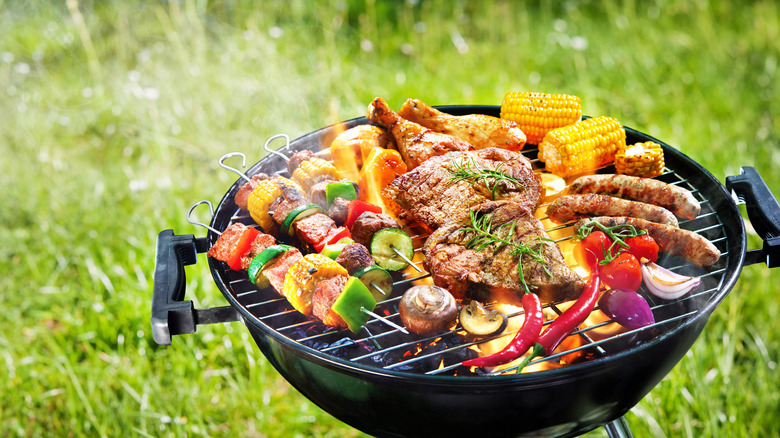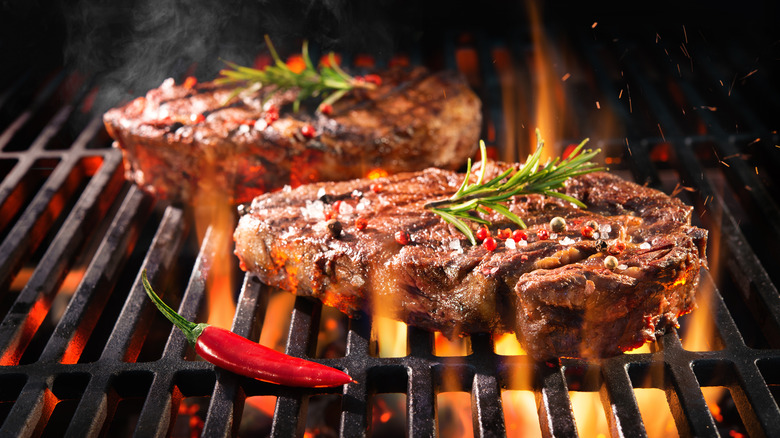Here's What Happens If You Don't Preheat Your Grill
You probably know all about the importance of preheating your oven and how it can make or break a perfect roast chicken, cake, or casserole. When it comes time to cook something, you might not even think twice before setting your oven to preheat first. But what you may not know is that preheating your grill is just as important.
According to the experts at Weber, there are two main reasons for this important step. First, not doing so means that the grill won't be at its ideal cooking temperature when you put your food on it. As a result, your meat, veggies, and other items will take longer to cook and they will have to stay on the grill longer, making that beautifully tender and juicy meat turn into overcooked pieces of rubber. Second, putting raw protein on a cold grill means you won't get those sought-after sear marks on your burgers, steaks, and pieces of eggplant — and you also won't get the smoky flavor that comes along with them.
Here's how long you should preheat your grill
According to BBQ Guys, to properly preheat a gas grill you should turn on the gas and light it up with all the burners on the highest possible heat setting. After this, shut the lid and let it warm up for about 10 to 15 minutes; for an infrared grill, leave the lid open and let it get toasty for about three to five minutes.
While The Kitchn agrees with the BBQ Guys recommendations, they also note that if you're using a gas grill to slow cook something, you should let it preheat on a medium setting for about 25 to 30 minutes.
If you have a charcoal grill, be prepared to set aside extra time for that smoky flavor. The Kitchn article suggests using a chimney starter to preheat this kind, allotting 25 minutes for two to three quarts of charcoal to become hot enough. Then, transfer the pieces onto your grill, add the grate, shut the lid, and set aside another 15 minutes for it to fully heat up. Also remember to leave the vents open to ensure that the air flows through as the grill preheats.

